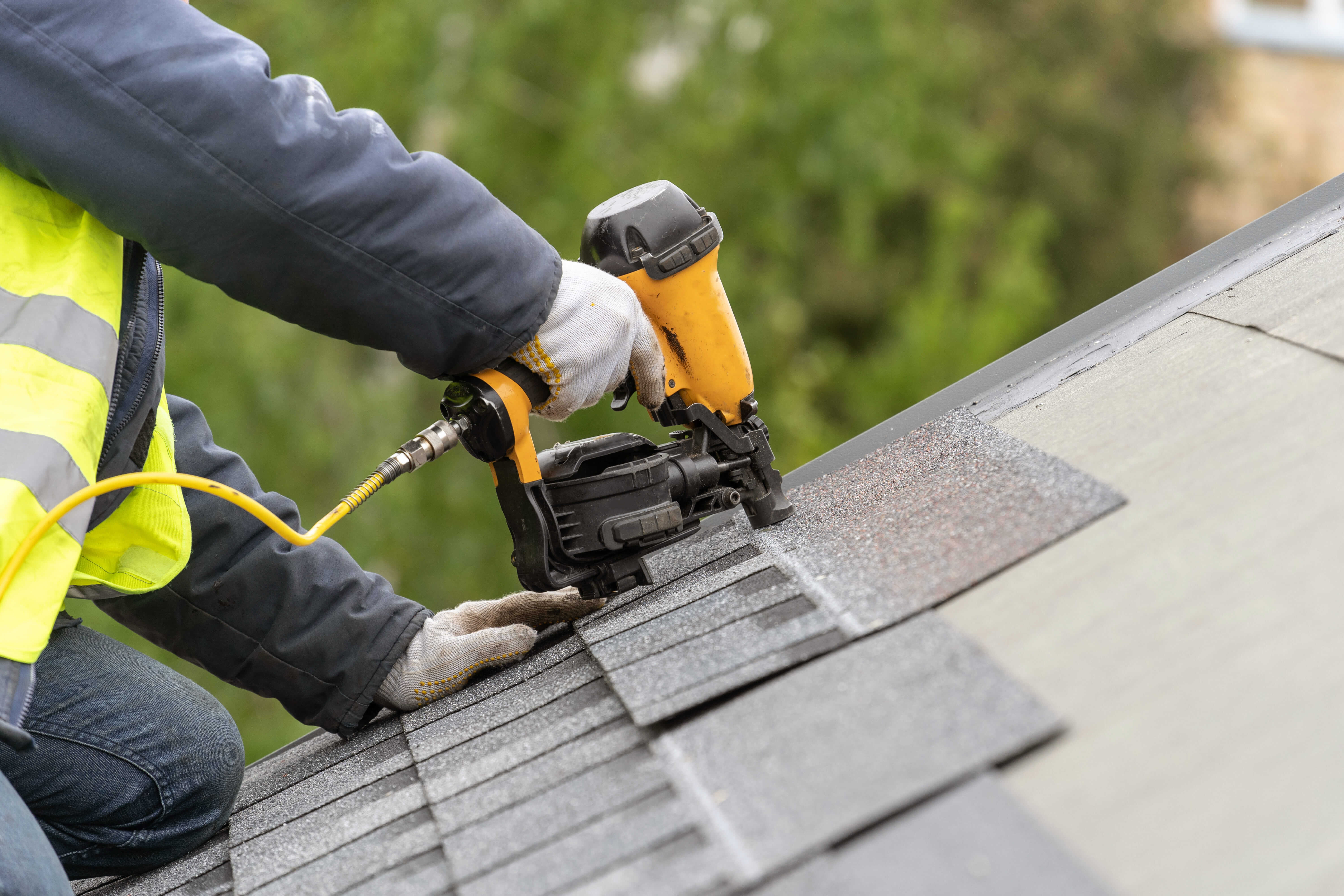Flat Roof Contractor Flat Roof Repair: Expert Roofing Restoration Providers To Fix Leaks And Damage Effectively
Checking Out Different Types of Roof Repairs
Ever looked at a mystical dark patch on your roofing and questioned, " What's actually going on up there?" Often, determining the best type of roof repair resembles detective work, unraveling hints left by the weather condition, time, and use. From subtle leaks to glaring damages, each repair type informs a story.

Typical Roof Repairs Unveiled
- Leak Fixes: The tricky perpetrators-- tiny cracks or holes where water insinuates. Ignoring them can turn a moderate inconvenience into a pricey nightmare.
- Shingle Replacement: Missing or broken shingles aren't simply an eyesore; they're invitations for water damage and insects.
- Flashing Repair work: Those metal strips around chimneys and vents? When harmed, they end up being entrances for leakages.
- Roofing Vent Repairs: Correct ventilation keeps your attic dry and your energy expenses low. When vents stop working, the roofing suffers calmly.
When Little Fixes Make a Big Difference
Picture a buddy who ignored a minor roof leakage, thinking it was no huge offer-- up until a storm hit, turning a drip into a deluge inside their home. This anecdote underscores why prompt repairs matter. The right repair could be as simple as sealing a fracture or as included as replacing several shingles. But how do you decide? Here's a quick decision guide:
| Problem | Normal Repair | Indications to Expect |
|---|---|---|
| Leakages | Sealant application or patching | Water spots on ceiling, mold development |
| Harmed Shingles | Shingle replacement | Missing out on granules, curling edges |
| Flashing Problems | Metal flashing repair or replacement | Rust, separation from roof |
| Ventilation Concerns | Vent repair or installation | Excessive attic heat, moisture buildup |
Doesn't the complexity of roofing repairs make you appreciate the craftsmanship behind a durable roof? Sometimes, a patchwork job isn't enough-- other times, a fast fix breathes new life into your whole roof system. What's clear is this: comprehending the types of repair work empowers house owners to act decisively, securing their financial investment before small cracks end up being large gorges.
Unveiling the Necessary Roof Repair Products
When a roof whispers signs of wear, the products you pick for repair work can either extend its life or quicken its death. Ever seen how a handful of loose shingles can result in a waterfall of leakages? That's the fragile dance between asphalt shingles and weather condition's unrelenting assault. These shingles, often the first line of defense, are valued for their balance between durability and ease of setup. However be careful-- just covering with mismatched shingles can turn a fast fix into a future headache.
Metal flashing often escapes notification till water spots appear on click here ceilings. This unassuming strip guards vulnerable joints where different roof sections fulfill. A skilled roofing professional knows to check and replace rusty flashing before mold claims victory. It's the difference in between a minor repair work and an expensive interior restoration
Materials that Matter
| Product | Typical Usage | Expert Tip |
|---|---|---|
| Asphalt Shingles | Replacing harmed or missing shingles | Match granule color and density for smooth mixing |
| Metal Flashing | Sealing roof joints and around chimneys | Use corrosion-resistant metals and seal edges with roofing cement |
| Roof Cement | Sealing minor cracks and securing flashing | Apply while warm for finest adhesion and longevity |
| Roof Felt | Underlayment for moisture barrier | Staple carefully to prevent puncturing the waterproof layer |
Have you ever questioned why some roofings seem to weather storms unscathed while others fail? The secret often lies underneath the surface in the underlayment. Roofing felt, a humble yet important material, acts as a second shield when shingles stop working. Skimping here indicates welcoming wetness to sneak in unnoticed. Here's a pro insight: always guarantee the felt lies flat without any wrinkles; even a small bubble can trap wetness and result in early rot.
- Examine fasteners-- loose nails can loosen shingles and stir catastrophe.
- Use a multi-layer method; combining materials boosts strength.
- Keep in mind, roof cement is your buddy but not a cure-all; it's finest for area repair work.
In the world of roof repairs, accuracy with products transcends mere patchwork. It's a calculated symphony of texture, wetness control, and weather condition resistance. The next time you lift a shingle, ask yourself: does this repair work honor the roofing's initial defense or merely paper over the fractures?
Assessing the Damage with a Keen Eye
Ever climbed up onto your roofing just to understand that what appeared like a small leak may be hiding a labyrinth of damaged shingles and deformed decking underneath? The primary step in any roof repair is a meticulous evaluation. Walk the boundary with care and try to find curled edges, dark areas, or granule loss on the shingles-- these subtle signs often whisper louder than a gaping hole. Do not just look; study the angles, due to the fact that water seepage rarely reveals itself nicely.
Gathering Products: The Accuracy of Preparation
Before ascending the ladder, guarantee you have all the necessary tools at arm's reach. Think of the disappointment of stabilizing on a slanting surface area, understanding you forgot your roof cement or roofing nails. Here's a checklist to keep helpful:
- Replacement shingles matching your existing roof
- Hammer and galvanized roof nails
- Roofing cement or sealant
- Energy knife for accurate cuts
- Flat crowbar to eliminate damaged shingles
- Safety belt and non-slip shoes
Precision in Removal and Replacement
Removing harmed shingles needs both strength and skill. Insert the lever gently under the shingle, raising nails without tearing adjacent locations. One may be lured to tug forcefully, but gradual utilize avoids additional destruction. When placing new shingles, stagger them properly-- keep in mind, a misaligned shingle can end up being a gateway for rainwater, inviting leakages that slyly erode your home's structure with time.
Sealing the Offer: Avoiding Future Leakages
Using roofing cement isn't just slathering tar; it has to do with producing a resilient barrier. Dab a modest quantity under the shingle tabs and press firmly, ensuring a snug fit. Excessive cement can break in the sun, too little invites wetness. Have you noticed how some roofings endure storms untouched? That's the result of specialist sealing, a subtle art that changes easy repairs into lasting security.
Security Tips Every Do It Yourself Roofer Must Swear By
- Never deal with a damp or windy day-- slips occur faster than you think.
- Utilize a sturdy ladder put on firm ground and inspect its angle.
- Wear gloves to safeguard your hands from sharp edges and nails.
- Keep an emergency treatment package nearby; small cuts can intensify if neglected.
- Deal with a buddy whenever possible-- roofing systems aren't a solo experience.
Why Trusting Expert Roofer Matters
Ever observed how an easy leak can silently change into a catastrophe? Roofing repair work require accuracy, and hiring beginners often results in patchwork services that fall apart with the next storm. An expert specialist does not simply slap on shingles; they detect the source, whether it's worn flashing, compromised underlayment, or concealed rot.
Think of climbing onto the roofing system yourself, equipped with a hammer and some nails, only to realize you've aggravated the problem. The reality is, roofing system damage isn't constantly visible from the ground and even the attic. Specialists wield wetness meters and infrared cams-- tools that reveal the hidden. Would you trust your home's guard to uncertainty?
Key Advantages of Professional Roof Professionals
- Precise Assessment: They recognize subtle signs like granule loss or sagging decking that most miss out on.
- Code Compliance: Guaranteeing repair work meet local building regulations, avoiding future insurance headaches.
- Material Knowledge: Choosing the best materials to match your roofing system's distinct profile and environment challenges.
- Safety First: Browsing high slopes and heights with appropriate harnesses and equipment.
- Guarantee Guarantee: Backing repair work with guarantees that secure your investment.

Specialist Tips for Working With the Right Roofing Contractor
- Validate licensing and insurance coverage-- do not gamble with unproven credentials.
- Ask for an in-depth written quote detailing scope and materials.
- Ask about their process for attending to hidden damage revealed during repair work.
- Check how they manage particles elimination-- roof work shouldn't leave a mess behind.
- Confirm experience with your specific roofing system type, whether asphalt, metal, or tile.
In roof repair work, faster ways typically cost more in the long run. The experts know when to repair, when to change, and how to extend your roofing's life-span. Isn't it much better to protect your home's first line of defense with those who see beyond the surface?
Professional Roofing System Fixes in Baltimore County
Baltimore County is a vibrant location known for its diverse communities and rich history. With a population that delights in a mix of rural and urban living, the county offers attractions like the beautiful Loch Raven Reservoir and the lively Towson Town. Residents benefit from a strong regional economy and access to quality public parks and cultural events, making it a preferable location to live and work.
For dependable guidance and a totally free assessment on roofing repairs, think about connecting to CRG Roofing and Siding. They supply expert guidance tailored to your requirements and help ensure your roof remains in excellent condition.